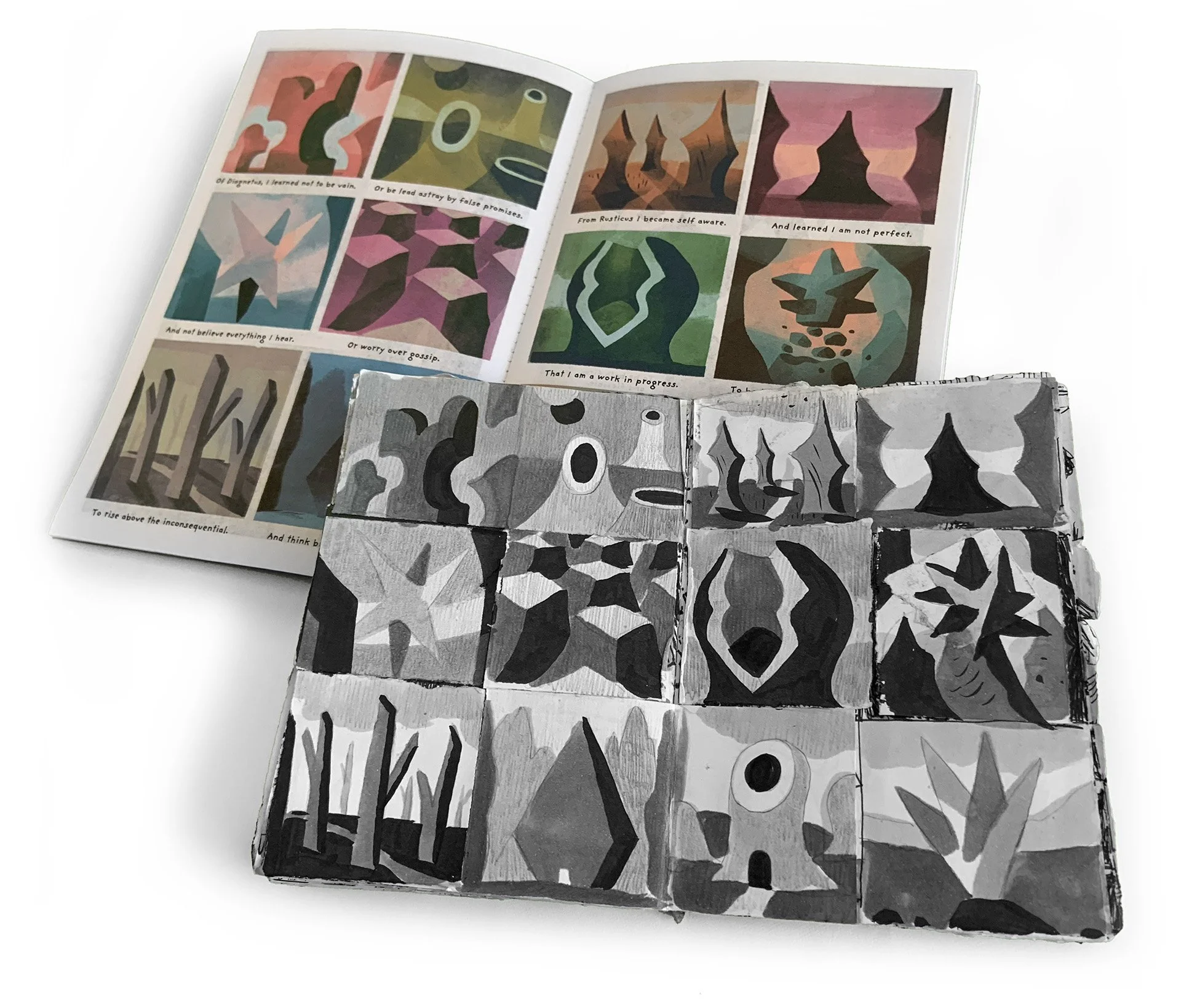You Are Who You Know
“Who am I?” is a question that runs through all my zines. Marcus Aurelius has a good answer to this question in his first book – you are who you know. And by following his lead and chronicling how people have influenced me, I have a greater appreciation of where I am coming from.
Book no. 8 Marcus Aurelius
My Interpretation of Meditations Book One by the Roman Emperor and Stoic Philosopher Marcus Aurelius.
A self published zine by Mike Kerr
Release Date TBA
Recently I have been filling my sketchbook pages with abstracted environments that I call mindscapes. They are fun, relatively mindless, and meditative to draw. And I wondered if I could tell a story through these introspective places. My wife had a book by Marcus Aurelius kicking around so I figured why not illustrate it? So I did.
Mindscapes
Improbable and impossible landscapes for encouraging contemplation.
Somewhere to explore the visual juxtaposition of places and ideas.
Adapting Marcus Aurelius taught me something about myself and my art. When he wasn’t doing the Emperor thing, Marcus Aurelius was also known as a Stoic philosopher. And I recognize a little of myself and my work in Stoic philosophy. I’ve never been enthusiastic about expressing emotions directly. From a social and creative perspective this can be limiting. We all appreciate enthusiasm, maybe even expect it. And while I am very enthusiastic about creativity – mine and others. I am just not comfortable showing it.
As an example, I wanted to get into to kids book publishing. However I had trouble because I was unable to make my work emotional or social enough, and unfortunately for me the contemporary literary market emphasizes social stories and emotional storytelling. This realization helped me understand what my art is, and what it is not.


